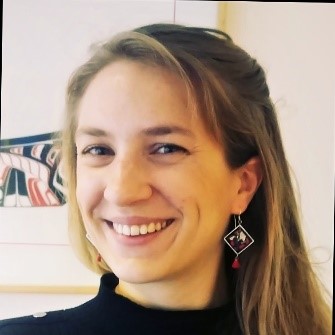Welcome to the Vaisar Laboratory
The focus of the lab is on understanding molecular mechanisms by which lipoproteins contribute to development and progression of heart disease, stroke and Alzheimer’s disease. To facilitate these studies, we apply state-of-the-art quantitative mass spectrometry techniques to blood, CSF, cells and tissues.
Research:
Research Interests
Dr. Vaisar’s research focuses on examining the role of metabolic diseases in the development and progression of cardiovascular disease. Specifically, his research centers on the relation of diabetes, lipoproteins metabolism and the role lipoproteins play in the accelerated development of cardiovascular disease in diabetes. His research further focuses on the application of state-of-the-art quantitative mass spectrometric techniques to basic, translational as well as clinical studies.
Current projects focus on:
- HDL as a carrier of biomarkers of cardiovascular disease. This project focuses on development and application of quantitative proteomic methods to discovery of biomarkers of cardiovascular disease. Unlike whole plasma, HDL is a simple proteome of up to 100 proteins which is in the causal pathway of cardiovascular disease. Quantitative assessment of HDL proteome can therefore provide biomarkers for disease diagnosis as well as markers of therapeutic intervention efficacy.
- Triglyceride rich lipoproteins and residual cardiovascular risk. Even with the most potent lipid lowering therapies there remains a significant residual risk for adverse cardiovascular events. Triglycerides and especially lipolytic products of chylomicrons and VLDL, the remnant lipoprotein particles (RLPs), are strongly associated with CVD risk. This project focuses on the development of methods for characterization of the RLPs and investigating the molecular mechanisms by which the RLPs may be contributing to the CVD risk.
- Role of proteolysis in the pathogenesis of cardiovascular disease. The key process that precipitates the majority of cardiovascular events is a rupture of atherosclerotic plaque. Although it has been long postulated that proteolysis is the key mechanism of this process molecular mechanisms, proteases and their substrates, are not well understood. This project leverages high sensitivity mass spectrometry techniques and state-of-the art sample preparation technique (laser capture microdissection) to investigate the role proteolysis in plaque rupture.
- Applications of quantitative proteomics to clinical and translational studies. This research focuses on the development of quantitative liquid chromatography/tandem mass spectrometry-based assays (SRM-LCMS, Data-independent analysis, DIA) for quantification of proteins in lipoproteins, blood, as well as in urine, for discovery and validation as biomarkers of cardiovascular disease and cognitive impairment and Alzheimer’s disease.
To address these questions the Vaisar lab is using state of the art techniques including functional assessment of the HDL and RLPs in macrophages and endothelial cells, lipoprotein particle analysis using calibrated differential ion mobility analysis (cDMA) for direct lipoprotein particle measurement, and targeted quantitative methods for lipoprotein proteome analysis.

Members of the Vaisar Laboratory

Tomas Vaisar, PhD
Principal Investigator
Research Professor of Medicine
Tomas Vaisar received his PhD at the Institute of Organic Chemistry and Biochemistry, Czech Academy of Sciences in Prague, Czech Republic in 1992 in the area of Organic Chemistry focusing on gas phase ion chemistry and mass spectrometry. After 9 years in biotech industry, in 2002 he joined the laboratory of Dr. Jay W. Heinecke at the University of Washington, Seattle. In 2005 he was appointed to the faculty and is currently a Research Professor at the Division of Metabolism and Endocrinology and at the UW Medicine Diabetes Institute at the University of Washington. He serves as the Director of the Diabetes Research Center Quantitative and Functional Proteomics Core.

Noemie Clouet-Foraison, PhD
Postdoctoral Fellow. Noemie joined the lab from Laboratoire National de Métrologie et d’Essai, Paris, France and spent her first two years at Northwest Lipid Research Laboratories under joint mentorship of dr. Santica Marcovina and dr. Vaisar developing candidate reference method for Lpa using quantitative LCMS. Since joining the Vaisar laboratory at SLU in January 2020, her focus has been on the development of quantitative methods for characterization of HDL and remnant lipoproteins using DMA and quantitative LCMS.

Ilona Babenko
Research Scientist II
Focus of Ilona’s work is on cell based functional characterization of lipoproteins and sample preparation for proteomics analysis.

Aaron Boyce
Research Scientist II
Joined the laboratory right at the start of the covid pandemic mastered the lipoprotein proteomics analysis, operation of mass spectrometers as well as the data analysis. His focus is on quantitative proteomics analysis.

Carissa Thornock
Research Scientist II
Master of the differential ion mobility analysis - a method for separation, characterization and quantification of lipoprotein particles.

Jake Wimberger
Research Scientist II
Jake is master of instrumentation and HDL isolations. His focus in on technological aspects of range of analyses from lipoprotein isolations from blood and CSF to proteomics. His main focus is on development of new methods.
Contact Us
South Lake Union
850 Republican Street, N211
Seattle, WA 98109
Lab Phone: 206-616-4524
To inquire about Postdoctoral and Graduate Student Openings click on: tvaisar@uw.edu
